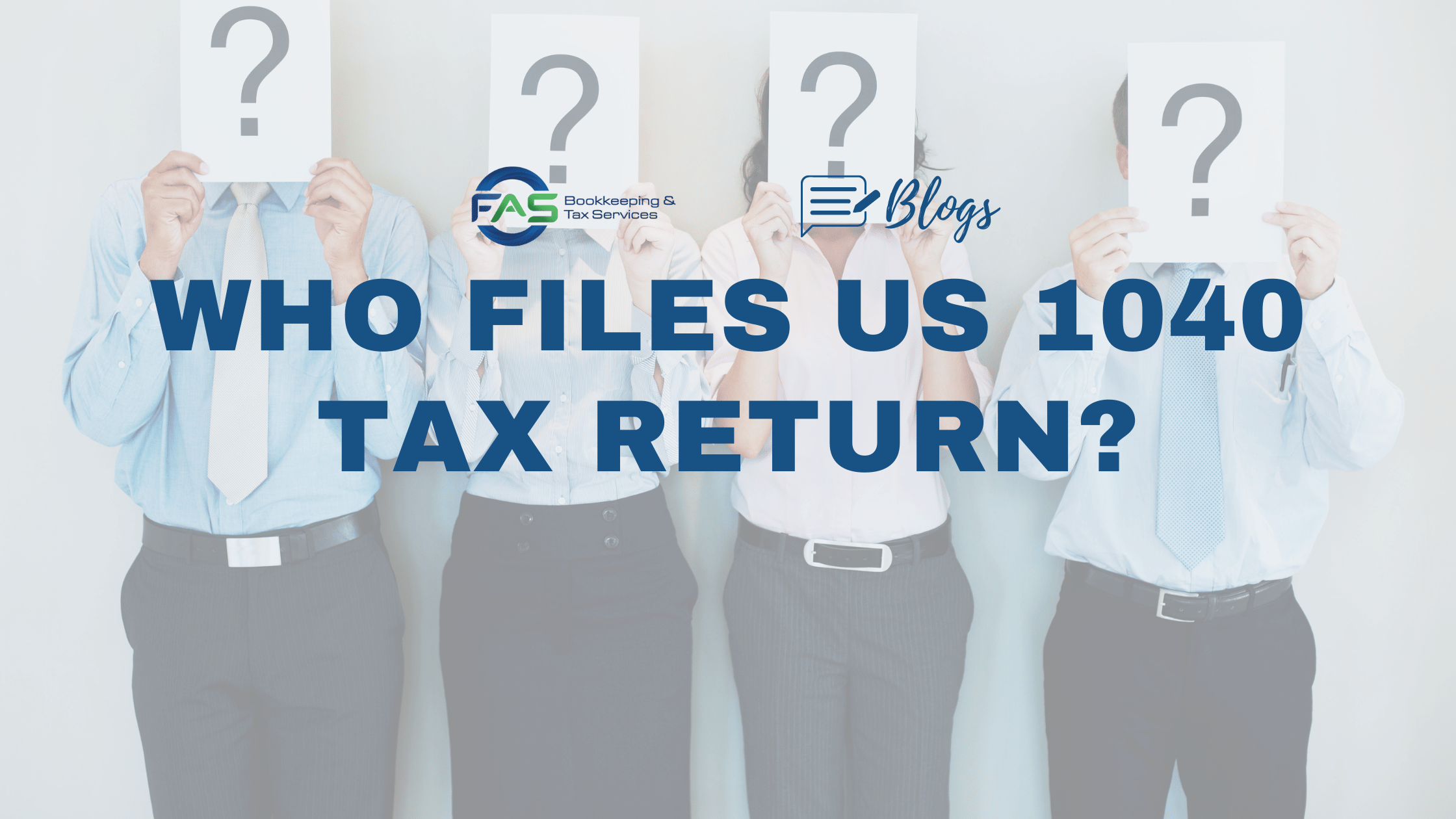Who Files US 1040 Tax Return?
The 1040 tax return is the most common form of filing a federal individual income tax return in the United States. It is also known as Form 1040 or Form 1040A, depending on whether you are filing jointly, single, or head of household.
The IRS estimates that over 100 million people file their taxes using this form each year. However, not everyone who files taxes does so through the 1040 method—you may choose to file differently based on your income and deductions.
 Who is required to file US 1040 tax return?
Who is required to file US 1040 tax return?
US Citizens
The United States is one of the few countries in the world that taxes its citizens on their worldwide income, even if they live outside of the country. If you’re a US citizen, you must file a US tax return every year.
Not filing your taxes is illegal and can result in fines or even jail time. You may also be denied entry into the United States.
Green Card Holders
Green Card Holders are required to comply with the filing of US tax form 1040. The Green Card Holder is a person who has been granted permanent resident status in the United States and has demonstrated the intent to reside permanently within the country. It is important for Green Card Holders to file their taxes because they are required to report all of their worldwide income and assets to the Internal Revenue Service (IRS).
Income includes any money that a person receives from work, investments, business ventures, or other sources. Income may be taxable or nontaxable depending on how it was earned. If you are a nonresident alien with no US source income, you do not need to file a tax return unless your gross income exceeds the threshold, excluding gifts or inheritance received from US relatives. The IRS requires nonresident aliens who have US source income over the threshold to file Form 1040NR with their local Enrolled Agent. A very short list of who files US 1040 tax return.
Tax year 2022 filing threshold
In general, you must file Form 1040 if you exceed 2022 “filing thresholds.”
These thresholds are different for each category of filer: married filing jointly, married filing separately, single dependents, and single under 65 or blind.
For example, if you are single and your income is $12,950 or more in a tax year, then you must file Form 1040.
The same goes for other categories of filer: if you’re married filing jointly with your spouse and your combined income is $25,800 or more; if you file as a head of household with a dependent child under 18 and your total gross income is $19,400 or more.
US Resident Alien
A resident alien includes anyone visiting the U.S. who meets a “substantial presence test”, which means that they have been present in the U.S. for an uninterrupted period of at least 183 days during any calendar year, or have been present in the US for at least 183 days during two non-consecutive years within a three-year period. If you are considered a resident alien, you may need to file a federal tax return and pay taxes on your worldwide income, even if you don’t have to file a state tax return.
If you’re a nonresident alien, then your income is taxed only on the income that is sourced within the United States (or its possessions).
 Rental of US Property
Rental of US Property
Property Not Used Personally
So, you’re a non-resident alien individual who is subject to 30% withholding on gross U.S. rents (not reduced under Canada-U.S. Treaty on real estate rental). But what does this mean?
You might not know it, but the United States and Canada have a tax treaty that helps to reduce the amount of taxes you owe on your U.S.-based income.
The tenants of your property are subject to withholding tax. You can also make a “net rental election” to be taxed on your net rental income. The election aims to treat rental income as income that is “effectively connected with a US trade or business”. This election is usually made by filing Form 1040NR
Property Also Used Personally
If you have rented out your property for less than 15 days in a year, you may be able to opt-out of including the rental income from your taxes but you will also not be able to deduct expenses arising from it. If you have personally used the property for more than 14 days or 10% of total rented days (whichever is greater) then you can divide the expenses based on that number of days. However, deductions might be restricted if a loss is made under passive activity rules.
If neither of these situations applies, then the only restriction could be passive activity loss rules.
US Non-Resident Alien.
If you are a non-resident alien that sold your personal condo or any other real estate property in a tax year, then the buyer of your property is required to withhold 15% of the proceeds and remit it to the IRS. You will then have to file Form 1040NR to claim the corresponding capital gain or loss on the sale, along with the withholding tax paid along with Form 8828-A showing that taxes on the sale has been settled.
Resident aliens are not obligated to withhold taxes and they are required to pay income tax on any capital gains that they’ve realized when they file Form 1040 with Form 1099-S bearing the date and amount of the sale. Now that answers the question who files US 1040 tax return when it comes to renting out a property in the US.
In a nutshell
With the US being one of the very few countries in the world that still has its taxation system based on citizenship instead of residency, treading US tax laws can be quite complicated and dangerous if you are not well versed with the ever-changing tax laws and policies. We hope we answered the question Who Files US 1040 Tax Return, but if you don’t want to risk the ire of the IRS, then you can make your life easier by getting in touch with us! Send us a message today to get proper professional assistance for your taxes! Our Enrolled Agent is always ready to help you out!





